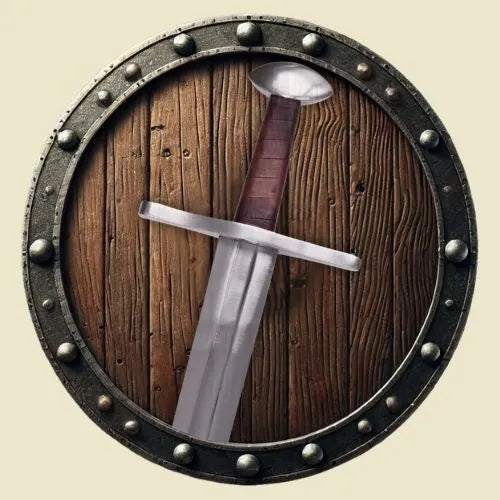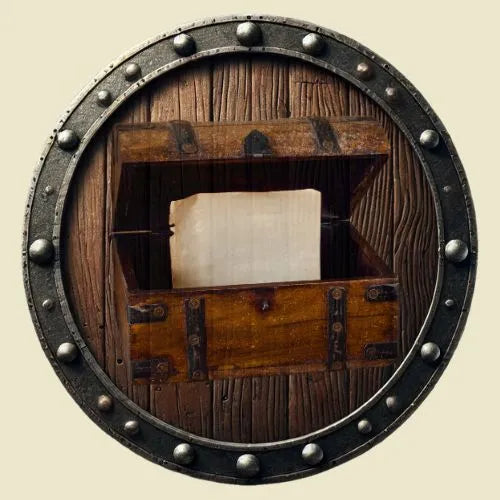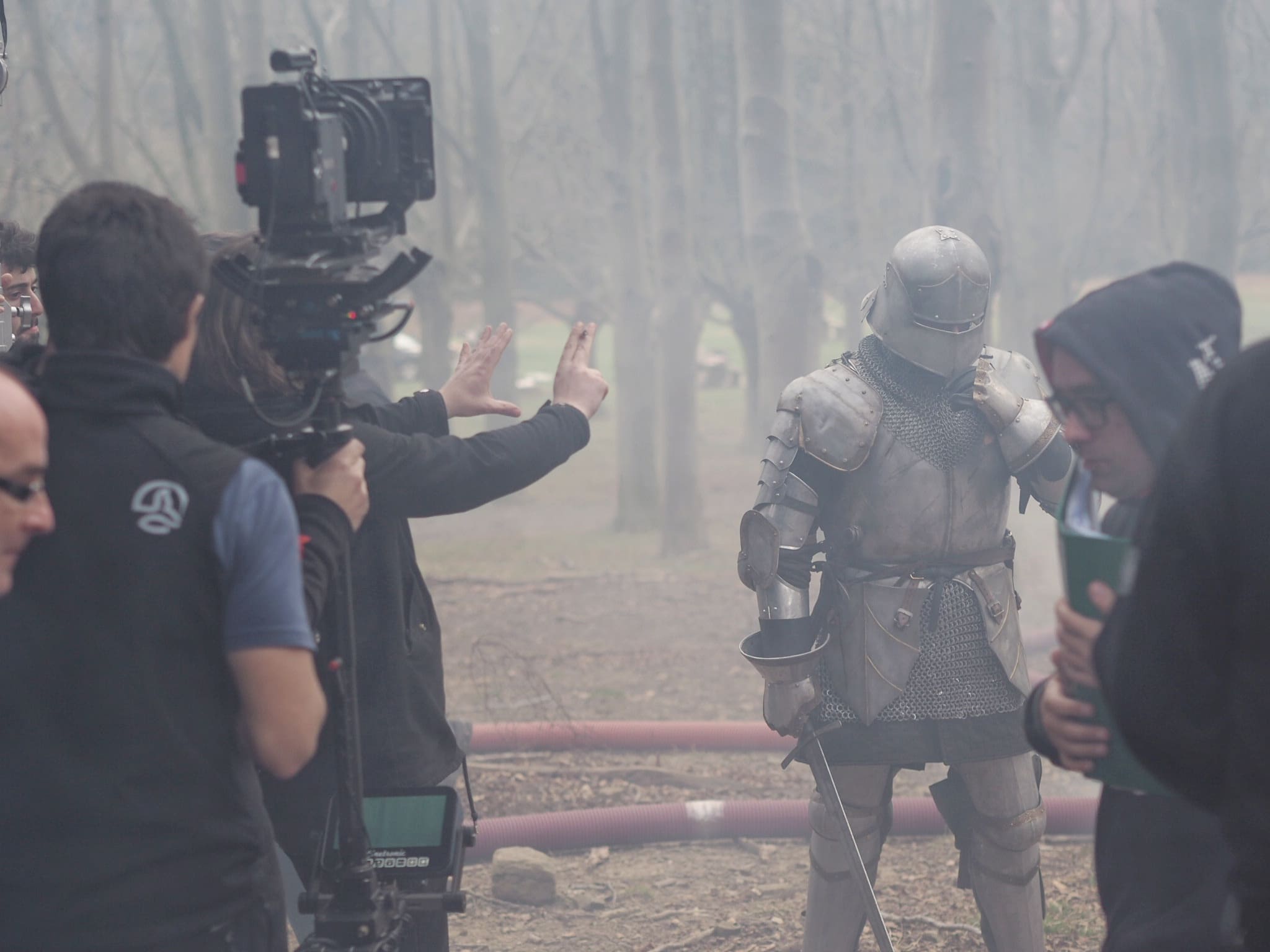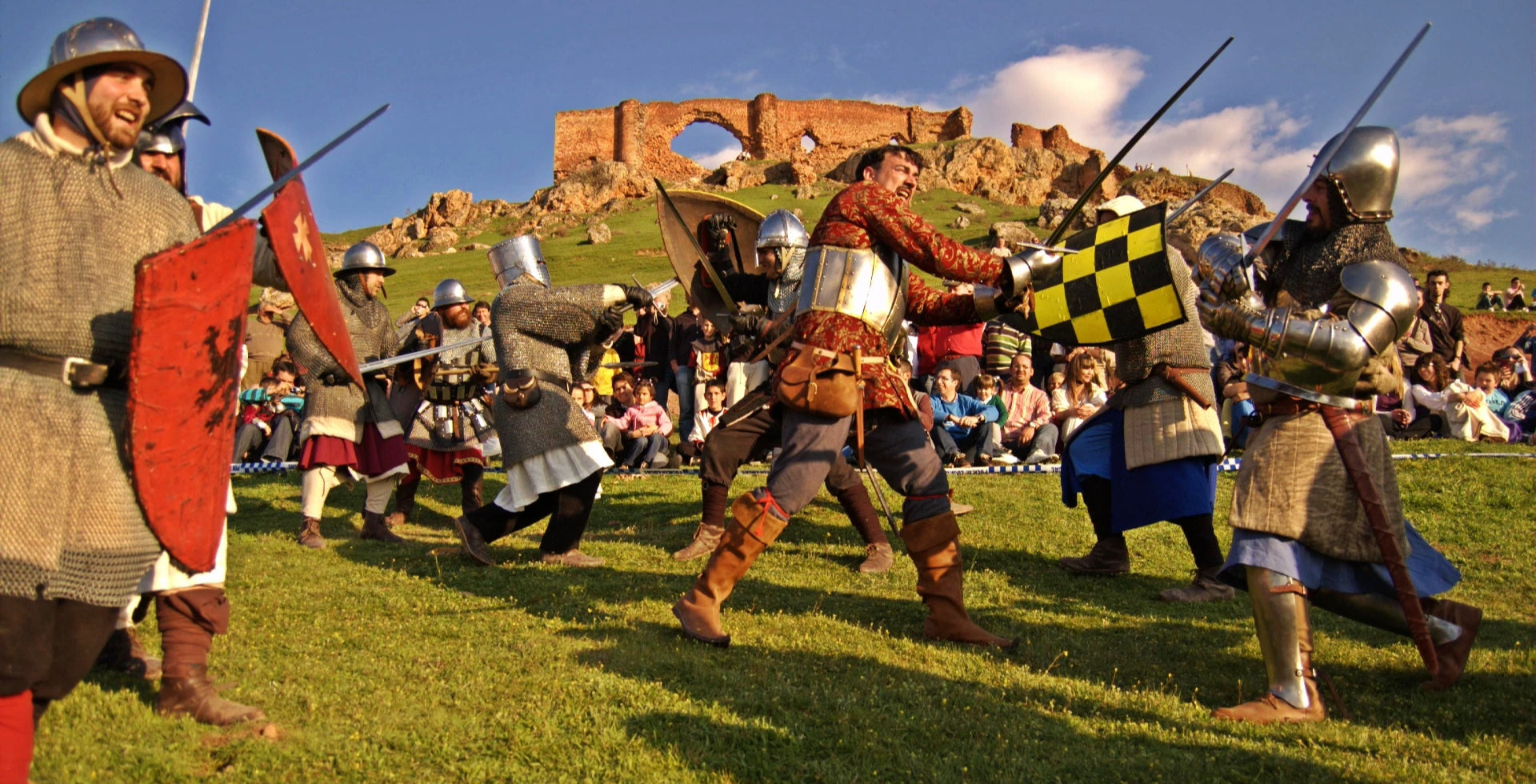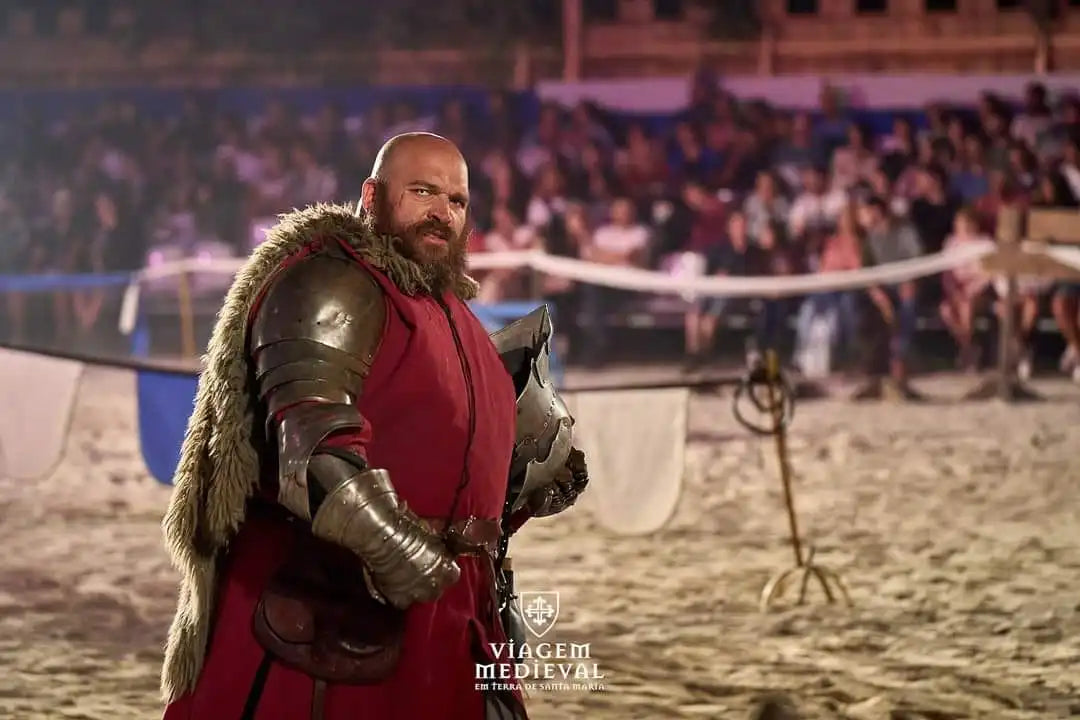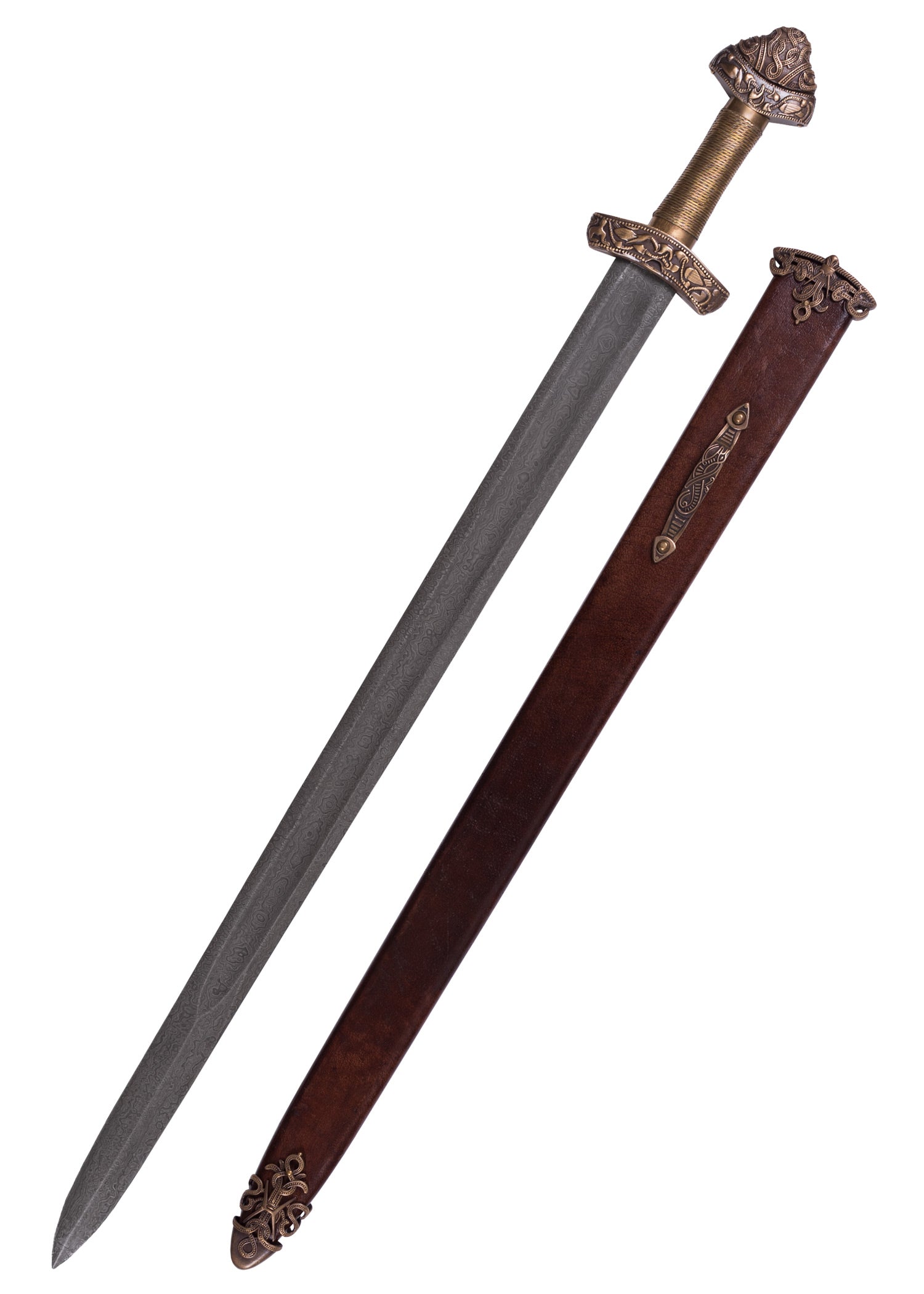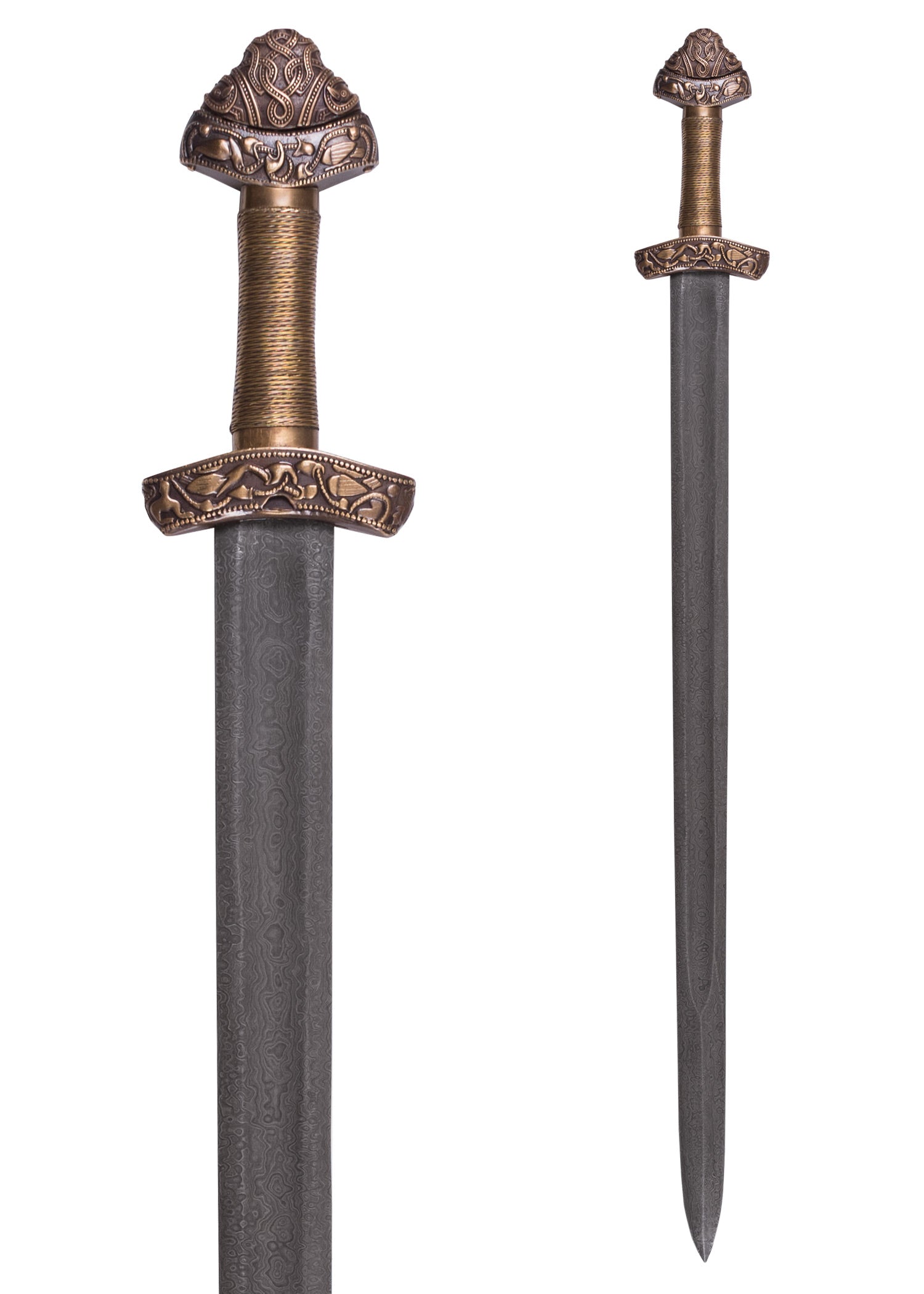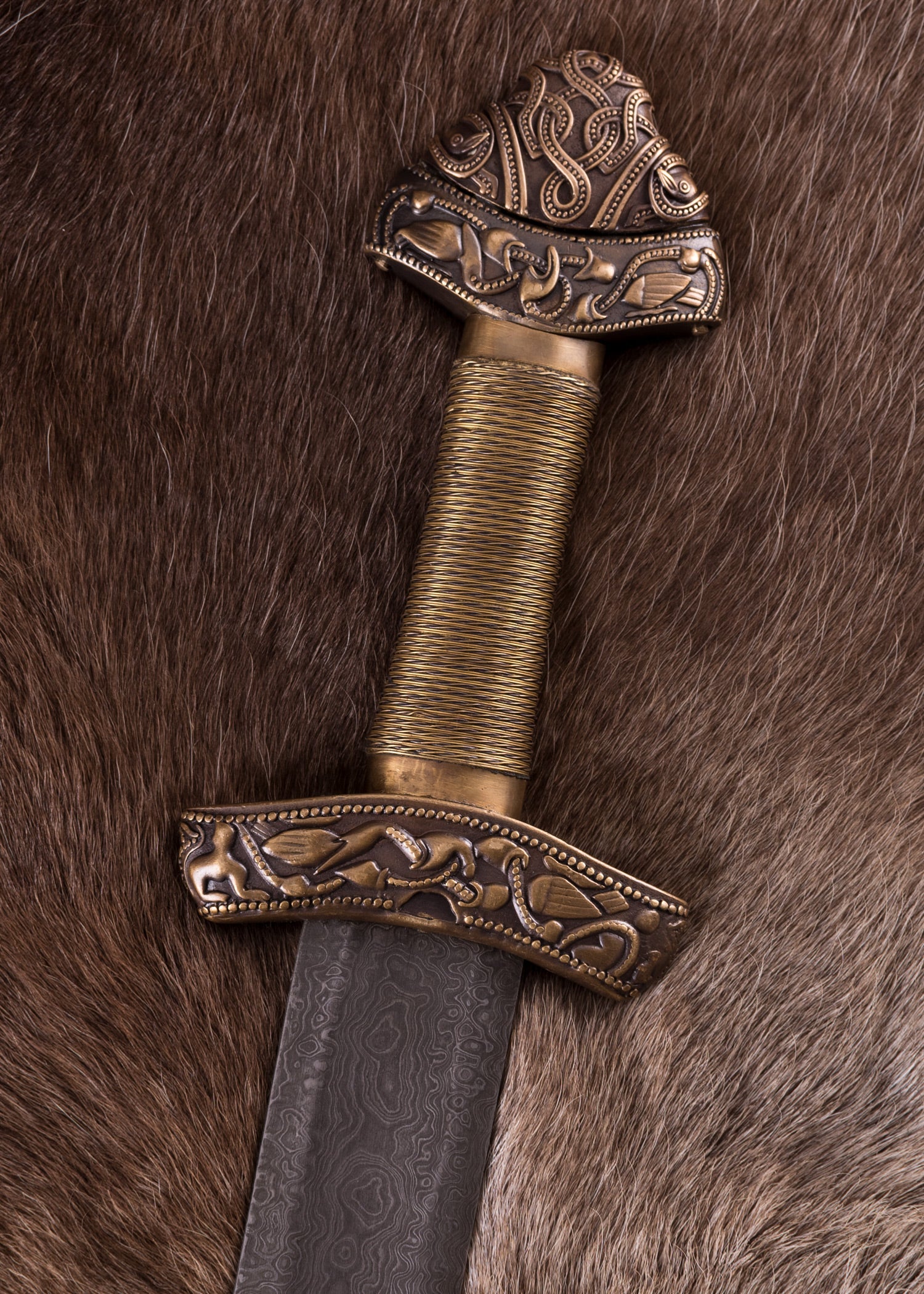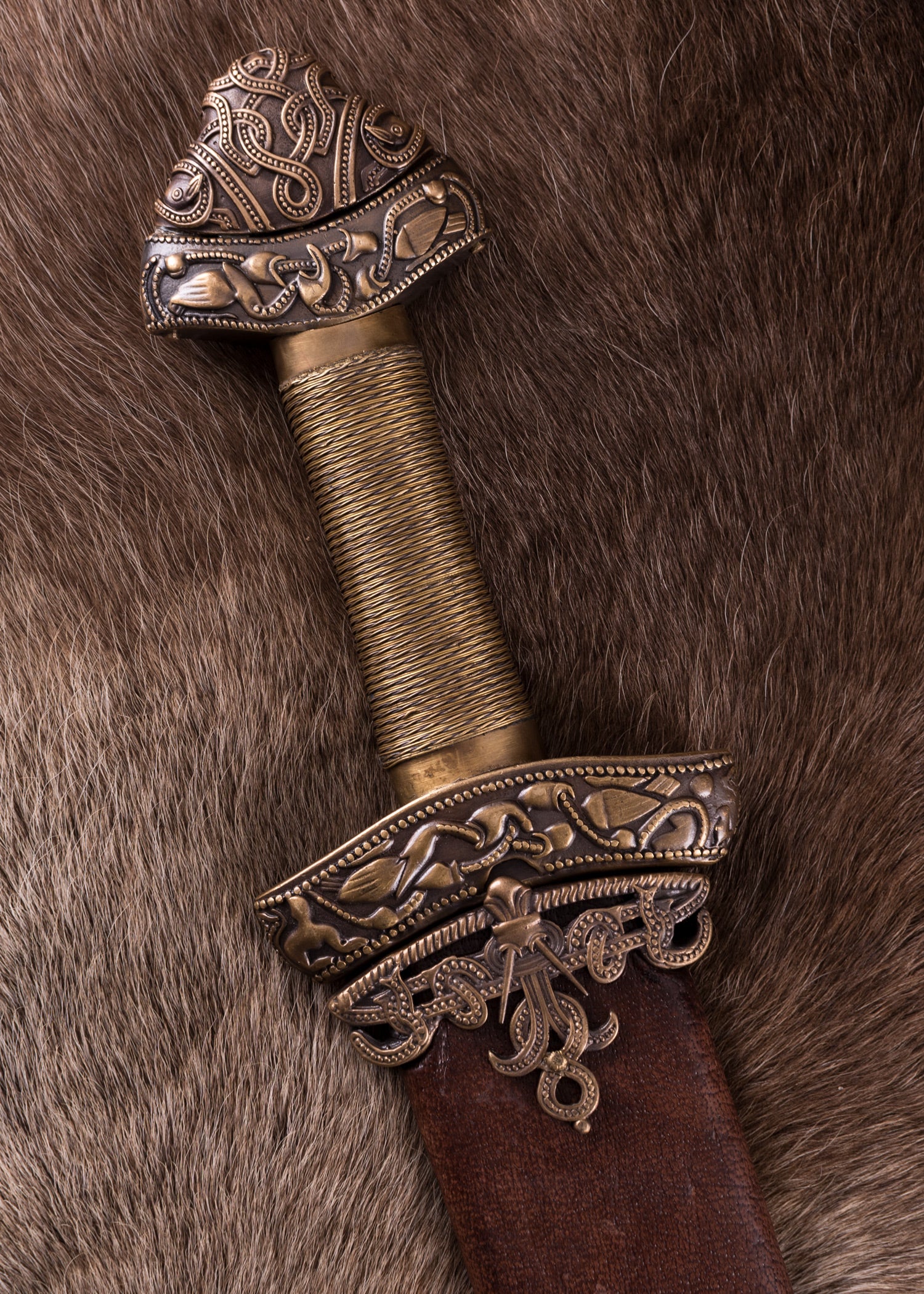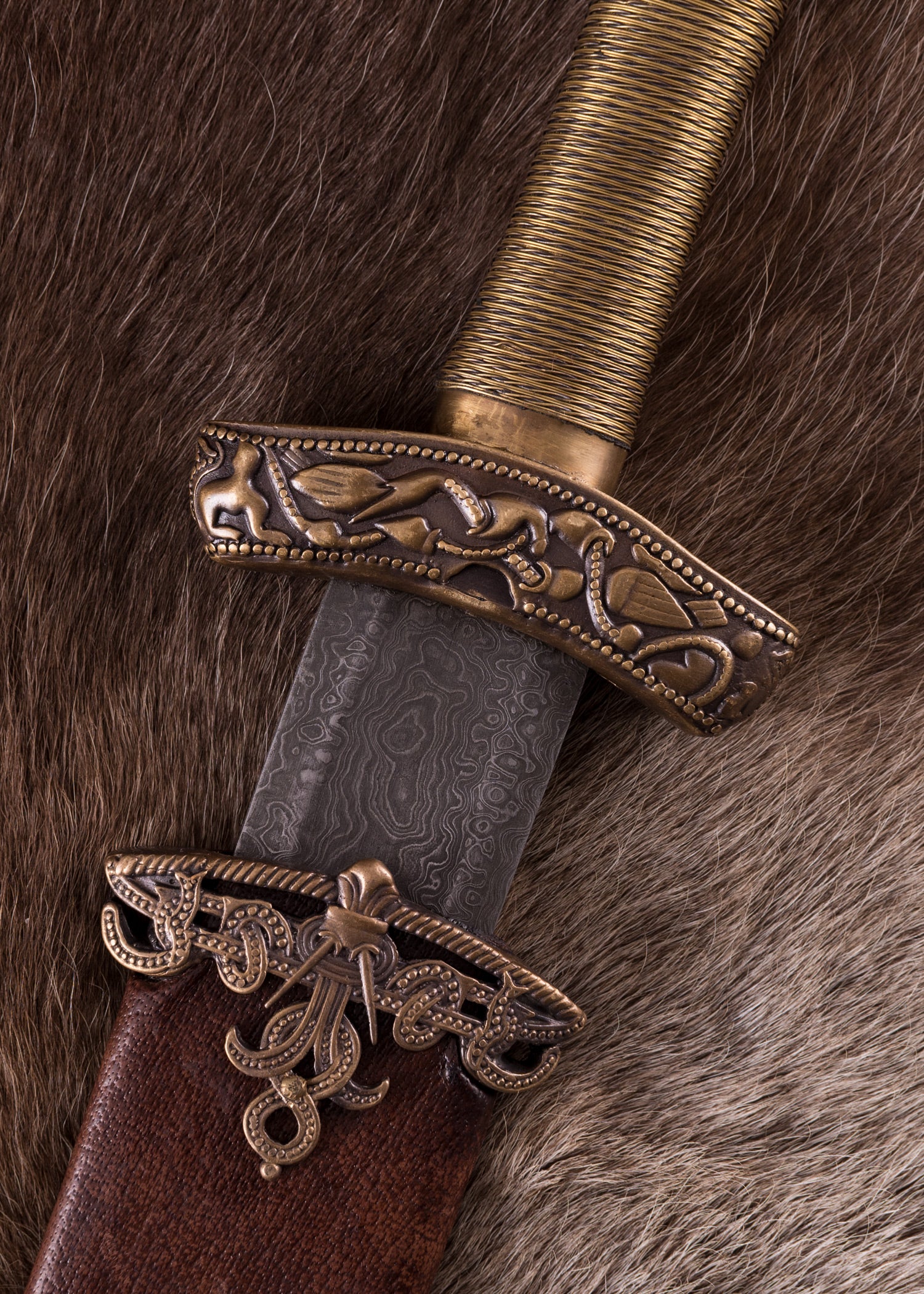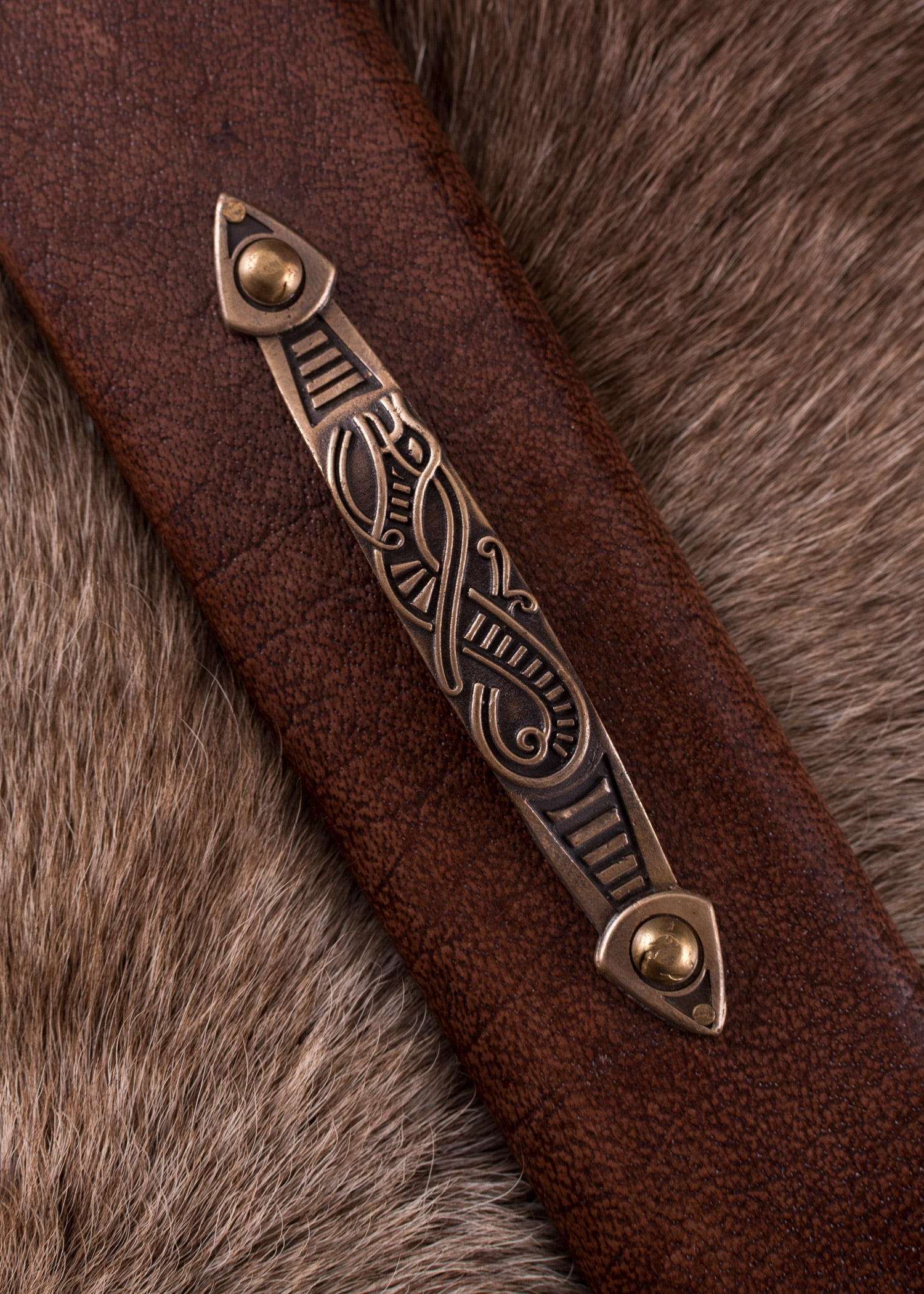Choose options
Discover Dybäck Viking Sword with Scabbard, Damascus Steel
Viking dybäck sword with scabbard, 11th century, Damascus blade
This magnificent one-handed Viking sword is based on an archaeological find made around 1870 in a bog at Dybäck – also dyback , dybek or dybeck – in Scania ( Skåne , still part of Denmark during the Viking Age, now Sweden). The original piece can now be admired in the Historical Museum – Historiska Museet – in Stockholm (exhibit SHM 4515).
Although the upper part of the pommel is missing, the gilt-wire-wrapped handle, the lower part of the pommel and guard (both made of gilt-plated silver), as well as the scabbard mouthpiece, which has fused with the guard over time, are still remarkably well preserved. All sections of the booklet are decorated with elaborately engraved motifs of birds, snakes, fantastic creatures, and intertwined tendrils.
This finely crafted piece of Viking history, dating to approximately 1000 AD, is classified as type Z according to the Petersen typology for Viking swords and is generally considered one of the finest specimens of Viking Age swords ever found in Scandinavia. The animal and plant ornamentation, which corresponds to the Anglo-Saxon Winchester style (8th–11th century), suggests that the sword originated in England or was at least strongly influenced by that country's style of goldsmithing. Since this style of ornamentation was particularly popular among the Scandinavian nobility, who had frequent contact with England in the late 10th and early 11th centuries, and given the precious materials and high-quality craftsmanship used, it is believed that this sword was the prestige or showpiece weapon of a wealthy Norse nobleman or person of high status.
The reconstruction offered here has a straight, double-edged blade made of Damascus* steel with a wide kerf and unsharpened edges. The handle consists of a short, slightly downward-curving crossguard, a handle section tightly wrapped with brass wire, and a generous pommel with a gently upward-curving base and a three-lobed cap. The guard and pommel base reproduce the highly detailed, engraved motifs and patterns that adorn the original artifact as closely as possible. As with many surviving historic examples of this period, the pommel of this sword is a two-part construction: the full-length blade tang is bolted to the lower section, and the upper cap is attached to the base with two rivets.
This early medieval one-handed sword is delivered with a brown wood/leather scabbard with mouth plate, cap and antique-finished brass sling (maximum belt width 6 cm).
This sword is designed as a collector's item or decorative object and is also ideal as an accessory, for example to complete your costume.
A version of this sword with a blade made of EN45 hardened spring steel is also available in our shop (item no. 0116040901).
Details:
- Material: Damascus steel blade (carbon steel, not stainless), brass wire wrapped handle, cast brass guard and pommel
- Total length: approx. 92cm
- Blade length: approx. 74 cm
- Blade thickness: approx. 4 mm (cutting edges approx. 1 mm)
- Handle length: approx. 18 cm (handle section approx. 9.5 cm)
- Maximum blade width: approx. 4.5 cm.
- Center of gravity: approx. 12.5 cm in front of the guard
- Incl. wooden case with genuine leather sheath and brass fittings
- Weight without cover: approx. 1.1kg
- Weight with case: approx. 1.7 kg
The above specifications may vary slightly from specimen to specimen.
The steel used here is not stainless and may show slight signs of corrosion. We recommend regular maintenance of the blade, for example with Ballistol, a universal oil ideal for preserving steel products.
*The term Damascus steel , Damascus steel , or simply Damascus refers to a composite steel made from two or more different types of steel. The name derives from the Syrian city of Damascus, which is considered an ancient stronghold and the origin of Damascus steel production. Typically, a hard, high-carbon steel and a soft, low-carbon steel are joined by repeated forging welding and folding. The high-carbon steel provides greater hardness, better hardenability, and longer edge retention, while the softer steel gives the blade greater elasticity and increased resistance to breaking. With this technology, which developed in a time of poor and changing steel qualities, the positive properties of different steels can be combined. Due to the different colors with different carbon contents, stunning patterns of alternating layers are created, such as the so-called twist Damascus or rose Damascus . Because of these patterns, Damascus swords from the Middle Ages were said to have an inherent magic.
At Tienda Medieval, we have thousands of medieval and other period products. Discover them!
Free shipping
The entire Iberian Peninsula from €60 (*Does not include islands) and shipping worldwide. Check our rates.
Customer service
We are available Monday through Friday to answer your questions.
Secure Payment
We comply with all regulations to ensure Secure Payment
Contact us
Need to contact us? Just email us at info@espadasymas.com

